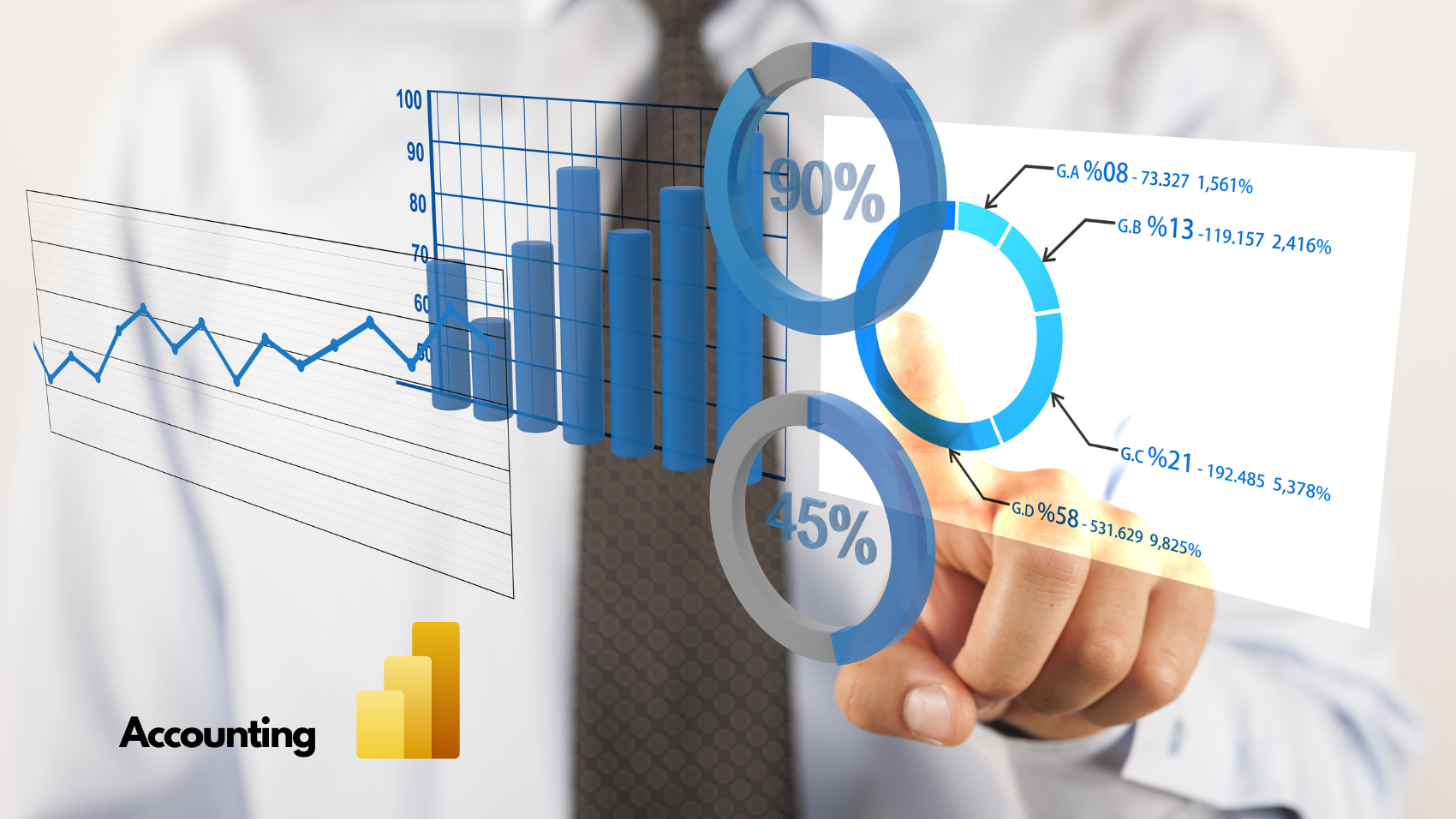In today’s modern business environment driven by data analytics, the role of technology in accounting continues to develop. One tool that has gained significant traction in recent years is Microsoft Power BI. Let’s explore what Power BI is, its features, advantages, and how it blows the accounting industry.
What is Microsoft Power BI?
Microsoft Power BI is a powerful business analytics tool that enables users to visualize and share insights from their data. It integrates with various data sources, including Excel, databases, and cloud services, to create interactive details and dashboards.
Key Features of Microsoft Power BI:
Data Connectivity: Power BI allows you to link with various data sources, making it possible to analyze a wide range of information.
Interactive Visualizations: You can design visually appealing representations of data that are easy to understand and interact with.
Powerful Analytics: This tool provides advanced analytical capabilities, including forecasting and statistical functions, to extract valuable insights from data.
Collaboration: Share reports and work collaboratively with colleagues in real-time, facilitating seamless teamwork.
Customizable Dashboards: Customize dashboards to suit specific business requirements using intuitive drag-and-drop features, ensuring they display the most relevant information.
Advantages of Using Microsoft Power BI:
1. Enhanced Data Visualization: Microsoft Power BI empowers users to transform complex datasets into visually engaging charts, graphs, and dashboards. This enhanced data visualization capability enables decision-makers to quickly identify patterns, trends, and insights within their data, facilitating informed decision-making processes.
2. Real-Time Reporting: With Power BI, users can access up-to-date information and track key metrics in real time. This real-time reporting feature ensures that businesses have the most current data available, allowing for agile decision-making and responsiveness to changing conditions.
3. Cost-Effective: Power BI offers a cost-effective solution compared to traditional business intelligence (BI) tools. Its subscription-based model and scalable pricing make it accessible to businesses of all sizes, reducing upfront costs and providing flexibility in usage and expansion.
4. User-Friendly Interface: Power BI features an intuitive and user-friendly interface that allows users to create, customize, and interact with reports and dashboards without extensive technical expertise. This ease of use empowers business users and analysts to derive value from their data independently.
5. Integration: Power BI seamlessly integrates with other Microsoft tools, such as Excel and Office 365. This integration enables users to leverage existing data sources and workflows, streamlining the process of data preparation, analysis, and reporting within familiar environments.
These capabilities make Power BI a versatile and accessible tool for businesses seeking powerful data analytics and reporting capabilities without the complexity and high costs associated with traditional BI solutions.
Disadvantages of Using Microsoft Power BI:
1. Learning Curve: Microsoft Power BI offers a robust set of features, but to fully leverage its capabilities, users may need some training. This training helps users navigate the tool efficiently and understand how to manipulate and analyze data effectively.
2. Data Connectivity Limitations: While Power BI can connect to multiple data sources, some sources may require additional configurations or setup to integrate seamlessly with the tool. This could involve setting up APIs or ensuring compatibility with specific data formats.
3. Cloud Dependency: Power BI relies on cloud services for optimal performance and scalability. While this provides flexibility and accessibility, it also means that users need a reliable internet connection to access and work with their data effectively.
These considerations highlight the need for proper training and setup to maximize the benefits of Power BI while being mindful of potential connectivity requirements and dependencies on cloud infrastructure.
Impact on the Accounting Industry:
Power BI is revolutionizing the accounting industry by enabling professionals to gain in-depth insights into financial data, streamline reporting processes, and improve decision-making. According to recent statistics, the adoption of Power BI among accountants and finance professionals has increased significantly, with over 77% of organizations utilizing or planning to use Power BI for financial reporting and analysis.
Here’s how accountants and practice managers can make the most of Power BI in simpler terms:
Financial Analysis: With Power BI, you can examine financial information to spot trends, unusual patterns, and areas of opportunity. This helps in understanding the financial health of a business.
Client Reporting: Power BI allows you to generate interactive reports that you can share with clients. These reports are dynamic and visually appealing, making it easier to convey complex financial information.
Budgeting and Forecasting: Using Power BI’s advanced tools, you can create accurate forecasts and projections based on historical data. This helps in planning budgets and predicting future financial outcomes.
Compliance Monitoring: Power BI assists in keeping track of regulatory requirements and compliance standards. It can flag potential risks or discrepancies, allowing for timely interventions to mitigate issues.
Power BI simplifies complex financial data into reasonable insights, empowering accountants and managers to make informed decisions and provide valuable guidance to clients.
Taking the inference, Microsoft Power BI offers enormous potential for accountants and practice managers to enhance data-driven decision-making, optimize reporting processes, and drive business performance. As technology continues to evolve, incorporating Power BI skills into accounting professional courses can empower future professionals with the tools needed to succeed in the digital age.
For further insights on why accountants use Power BI, refer to this informative article: https://www.accountingweb.co.uk/community/industry-insights/5-reasons-accountants-use-power-bi

